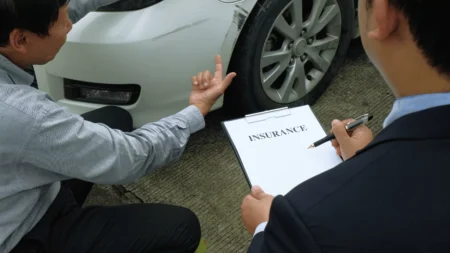If you need to rent a car after an accident or while your car is being repaired, you may wonder how long your auto insurance will cover the rental car.
The answer depends on several factors, such as the type of rental car coverage you have, the duration and cost of the rental, and the reason for renting a car.
In this article, we will explain how rental car coverage works in auto insurance policies, how long it typically lasts, and how to maximize it. We will also discuss some alternative options for rental car coverage that you may want to consider.
Understanding Rental Car Coverage in Auto Insurance Policies
Rental car coverage, also known as rental reimbursement or transportation expense coverage, is an optional feature that you can add to your auto insurance policy. It helps pay for the cost of renting a car when your own car is unavailable due to a covered loss, such as an accident, theft, vandalism, or fire.
Types of Rental Car Coverage
There are two main types of rental car coverage in auto insurance policies:
- Daily limit: This type of coverage pays for a fixed amount per day for the rental car, up to a maximum number of days. For example, if you have a $30 per day/$900 per claim limit, your insurance will pay up to $30 per day for the rental car, but not more than $900 for the entire claim.
- Total limit: This type of coverage pays for a fixed amount for the entire claim, regardless of how long you rent the car or how much it costs. For example, if you have a $1,200 per claim limit, your insurance will pay up to $1,200 for the rental car, whether you rent it for one day or 30 days.
Coverage Limits and Duration
The amount and duration of rental car coverage vary depending on your auto insurance policy and the company you choose. Typically, you can choose from different levels of coverage when you buy or renew your policy. The higher the limit, the more expensive the coverage will be.
The duration of rental car coverage also depends on the reason for renting a car and the progress of your claim. Generally, your insurance will pay for the rental car until:
- Your own car is repaired or replaced
- You reach your coverage limit
- You reach a settlement with your insurance company or the other driver’s insurance company
How Long Will Auto Insurance Pay for a Rental Car?
The answer to this question depends on several factors, such as:
Temporary Replacement During Repairs
If you need to rent a car while your own car is being repaired due to a covered loss, your insurance will pay for the rental car until your car is fixed or until you reach your coverage limit, whichever comes first. However, if the repair takes longer than expected due to delays in parts availability or labor shortages, you may run out of coverage before your car is ready. In that case, you will have to pay for the extra days out of pocket or negotiate with your insurance company for an extension.
Coverage for Accidents and Theft
If you need to rent a car after an accident or theft involving your own car, your insurance will pay for the rental car until your claim is settled or until you reach your coverage limit, whichever comes first. However, if the claim process takes longer than expected due to disputes over liability or damages, you may run out of coverage before your claim is resolved. In that case, you will have to pay for the extra days out of pocket or negotiate with your insurance company for an extension.
Factors that can Affect Coverage Duration
Besides the reason for renting a car and the progress of your claim, there are other factors that can affect how long your auto insurance will pay for a rental car. These include:
- The type and cost of the rental car: If you rent a more expensive or larger vehicle than what your policy covers, you may have to pay the difference out of pocket or reach your coverage limit sooner.
- The location and season of the rental: If you rent a car in a different state or country than where your policy was issued, you may face different rules and regulations regarding rental car coverage. Also, if you rent a car during peak seasons or holidays, you may face higher rates and lower availability of rental cars.
- The terms and conditions of your policy: Your policy may have specific limitations and exclusions regarding rental car coverage. For example, some policies may not cover rental cars used for business purposes, while others may not cover rental cars driven by unauthorized drivers. You should read your policy carefully and understand what it covers and what it does not.
Maximizing Rental Car Coverage
To make sure you get the most out of your rental car coverage in auto insurance policies, you should follow these tips:
- Understand your auto insurance policy: Before you rent a car, check your auto insurance policy and see what type of rental car coverage you have, how much it pays, and how long it lasts. You should also check your deductible, which is the amount you have to pay before your insurance kicks in. If you have a high deductible, you may want to lower it or buy additional coverage to reduce your out-of-pocket expenses.
- Check rental car coverage options: When you rent a car, you may be offered additional insurance or waivers by the rental car company. These may include collision damage waiver (CDW), which covers damage to the rental car; theft protection (TP), which covers theft of the rental car; and personal accident insurance (PAI), which covers injuries to you and your passengers. You should compare these options with your own auto insurance policy and see if they are worth buying or not. Sometimes, they may be redundant or more expensive than what your policy already provides.
- Be aware of limitations and exclusions: When you rent a car, you should be aware of the limitations and exclusions that may apply to your rental car coverage. For example, some rental car companies may charge you for loss of use, which is the income they lose when the rental car is out of service due to damage or theft. Your auto insurance policy may not cover this charge, so you may have to pay it out of pocket or buy additional coverage from the rental car company. You should also be careful not to violate any terms and conditions of your policy or the rental agreement, such as driving under the influence, using the car for illegal purposes, or exceeding the mileage limit. Doing so may void your coverage and make you liable for any damages or losses.
Alternative Options for Rental Car Coverage
If you do not have rental car coverage in your auto insurance policy or if you want to supplement it, you may want to consider some alternative options for rental car coverage. These include:
- Credit card coverage: Some credit cards offer rental car coverage as a benefit to their cardholders. This coverage may cover damage or theft of the rental car, as well as loss of use and towing charges. However, this coverage may have limitations and exclusions, such as not covering luxury or exotic vehicles, not covering rentals longer than 15 or 30 days, or requiring you to decline the rental car company’s insurance. You should check with your credit card issuer and see what their coverage entails and how it works with your auto insurance policy.
- Supplemental insurance: You can also buy supplemental insurance for rental cars from third-party insurers. This insurance may cover your deductible, excess charges, loss of use, and other fees that your auto insurance policy or credit card coverage may not cover. This insurance may also provide additional benefits, such as roadside assistance, personal property protection, and trip interruption coverage. However, this insurance may be more expensive than other options and may not be available in all states or countries. You should compare the prices and benefits of different insurers and see if they suit your needs.
Rental car coverage is an important feature that can help you save money and hassle when you need to rent a car due to a covered loss. However, you should understand how it works, how long it lasts, and how to maximize it. You should also consider alternative options for rental car coverage that may offer more protection or flexibility. By doing so, you can enjoy your rental car without worrying about unexpected costs or liabilities.




